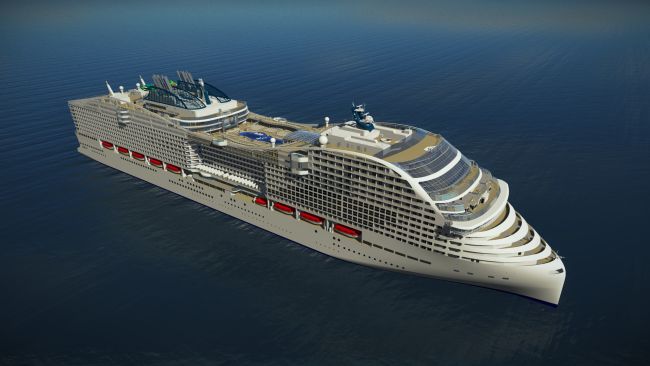Fincantieri, in close cooperation with the virology lab of the International Center for Genetic Engineering and Biotechnology, ICGEB, has developed an innovative next-generation air sanitation system called “Safe Air”, which will further significantly improve the quality and cleanliness of the air onboard cruise ships.
As part of its commitment to the health and safety of its guests and crew, MSC Cruises will be the first cruise operator which will install this new and advanced technology on MSC Seashore, the first of the two “Seaside Evo” class ships. MSC Seashore is currently under construction at Fincantieri’s Monfalcone shipyard and will be the largest and one of the most technologically advanced cruise ships ever built in Italy.
The “Safe Air” sanitation system was developed by Fincantieri’s designers and technicians and the virology lab of the International Center for Genetic Engineering and Biotechnology, ICGEB, a leading research institute headquartered in Trieste, Italy. The Institute provides businesses with scientific support to develop innovative technological solutions for the control of virus infections, which is particularly relevant today given the current global health crisis. The new next-generation air sanitation system will be based on the technology of UV-C lamps, i.e. type C ultraviolet rays, applied in combination with the air conditioning system. In this way, the airflow will be radiated at the source with a short wavelength light, hitting the organic particles and thereby preventing the circulation of air pollutants such as viruses, bacteria, and mold.
As with all MSC Cruises newbuilds, MSC Seashore – which is due to enter into service in 2021 – will also feature some of the latest technologies and solutions available to reduce her environmental footprint. These notably include a state-of-the-art Selective Catalytic Reduction (SCR) system and a next-generation Advanced Wastewater Treatment (AWT) system. The SCR systems reduce nitrogen oxide (NOx) emissions by 90 percent through advanced active emissions control technology. While the AWT systems take wastewater through a comprehensive process of purification and very fine filtration that transforms it into nearly tap-water quality.
MSC Seashore will also be fitted with shore-to-ship power capabilities that allow the vessel to connect to local power grids while at berth, further reducing air emissions.
MSC Cruises recently demonstrated its commitment to health and safety for its guests, crew, and communities it visits when in August it became the first major line to return to sea with a new rigorous well-being protocol approved by a range of national and regional authorities following a global shutdown of the industry in March as a result of the global pandemic ashore.
The new health and safety protocol, in fact, went beyond the guidance from the relevant authorities to set a new standard for the cruise industry, particularly with respect to universal testing.
All guests go through universal health screening before boarding a ship which comprises three comprehensive steps – a temperature check, a review of a personal health questionnaire, and a COVID-19 antigen swab test. The crew is tested up to three times before being permitted to start their work.
Other aspects of the health and safety protocol cover elevated sanitation and cleaning, protected ‘bubble type’ shore excursions, facemasks and maintaining social distancing, enhanced onboard medical facilities, daily health monitoring, and a robust contingency plan.
The protocol was designed by MSC Cruises’ in-house specialists in medical services, public health and sanitation, hotel services, heating, ventilation, and air conditioning, other shipboard engineering systems, information technology, and logistics.
A Blue-Ribbon COVID-19 Expert Group was also established that comprises a panel of internationally respected highly qualified professionals whose role is to inform and review the MSC Cruises’ protocol to ensure that the line’s actions are appropriate, effective, and informed by the best available science and health practices.
The protocol has been in operation since 16 August when MSC Grandiosa resumed sailing in the West Mediterranean. She has now completed eighth successful and safe voyages for thousands of guests and will be joined by MSC Magnifica on October 19th with cruises in the West and East Mediterranean.
Reference: fincantieri.com

